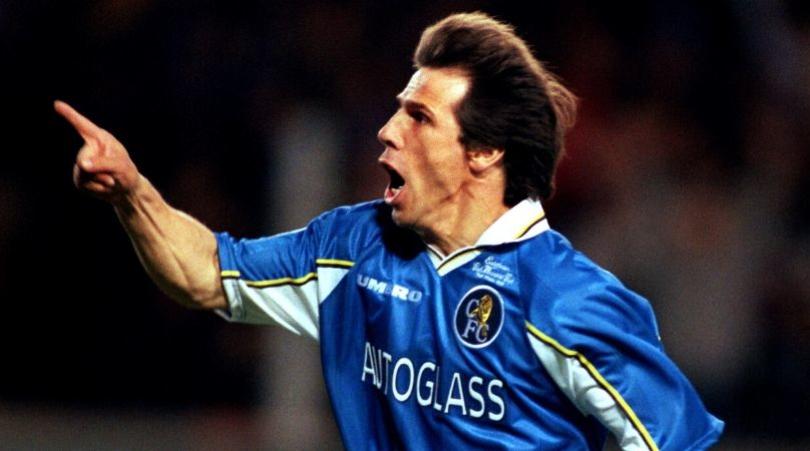Somehow, things have got worse at West Ham - and they didn't even play this weekend
Not even a postponed match against Manchester City has given West Ham fans a break from the woe this weekend

Storm Ciara seemed to arrive just in time for West Ham. Such has been the poverty of their recent form, that a postponed game should have brought relief. Particularly so with a trip to Manchester on the schedule and a match against a City side smarting from that absurd loss to Tottenham.
Unfortunately, there was no respite. Since the ignominy of surrendering that 3-1 lead to Brighton, West Ham have suffered a series of self-inflicted wounds.
First, through an apology which they extracted from Sky Sports for comments made on Sunday Supplement, which may have forced the broadcaster to back-pedal, but created a spectacle which hardly flattered the club.
Then, a week on, they suffered at the hands of a Mail on Sunday columnist, who used his platform on Saturday evening to ridicule those same sensitivities. It’s rare for a prominent journalist to be quite so scathing. Relationships have to be maintained, accreditations have to be requested and, together, those implied threats generally necessitate a softer tone. But Oliver Holt’s article was openly mocking, taunting even, and - as such - reflective of just how badly handled this episode has been.
It might actually have got worse. David Moyes’ defence was surely due a hammering at the Etihad, but it’s not often that a club’s relationship with its supporters deteriorates without actually playing. That it somehow managed to describe some of the naiveties which linger at the top of the game and also the prevailing confidence in spin - the belief, essentially, that those who run football clubs are still able to design the surrounding mood and retain the ability to manipulate fans’ perceptions.
That might have been true in the pre-internet era. Now, however, supporters have access to all the tools they need to analyse performance. Not just on the pitch, either. Nearly every Premier League team has independent social media accounts dedicated to finance, recruitment and academy production, meaning that anyone in search of a complete oversight can find it.
It doesn’t mean that every supporter is perfectly informed, just that the information exists for those who are interested.
Get FourFourTwo Newsletter
The best features, fun and footballing quizzes, straight to your inbox every week.
What it definitely does imply, however, is that those willing to protest – to pick up their placards and pitchforks – are doing so on the basis of more than just Match Of The Day highlights. They understand what their club is; they know whether it’s healthy or not and, in most cases, that position is informed by generational trends and filed accounts, not week-to-week results.
In other words, it’s the kind of movement which draws its energy from detail and which can’t just be fobbed off with finessed media coverage or pre-prepared lines about how much has been spent on new players. Modern supporters are too well informed for that. They not only have a better vantage over their club than ever before, they also understand - by comparison and because of the level of coverage - what a successful footballing organisation is supposed to look like.
They also have little tolerance for the kind of heavy-handed tactics which might have worked in the past.
As was revealed last week, a fan has been banned from London Stadium for wearing a protest t-shirt during a flag-waving ceremony ahead of the game with Liverpool. Most likely, he – Cameron Robson – was not displaying the GSB Out logo purely because of league position or performances, but because he has been driven to mild militancy by the repeating issues of the last ten years. He, like many, many others, is presumably dissatisfied with how his club looks and feels. It’s sensory revulsion, then, not the kind of fickle reaction which can be cured by quoting a few spending figures.
In that specific instance, what was the benefit of issuing a ban? As soon as the letter was received, it was photographed and uploaded to Twitter, where – inevitably – it went viral among the broader footballing population. By the end of the week, 24 hours later, Cameron Robson was being interviewed by The Sun and making his (valid) points to an audience of millions. How could West Ham not see that coming? That cycle is familiar enough to be its own trope.
As part of a broader behavioural pattern, though, it helps to demonstrate why attacking dissent with PR is such a mistake. Instead of trying to confront a discussion on the level at which it’s actually taking place, it reflects a determination to shut it down or turn the lights out around it – to reject criticism entirely, telling supporters that they’re wrong and the media that they’re being unfair. Given where West Ham are in the Premier League table and how much hubris the owners have been guilty of in the past, that's a very bold strategy.
But it's not a winning one. West Ham may think that they're winning the little battles, but they're still losing the war. Maybe they feel vindicated in forcing Sky to retract part of that Sunday Supplement two weeks ago, but they haven't dealt with any of the issues at that conversation's heart. They attacked the semantics, leaving the substance unchallenged. The journalists were right in what they said, they just didn't say it in quite the right way.
And, while a fan has been excluded, at what cost has that come? As he explained in an interview with The Sun's William Pugh:
"My dad took me to West Ham in his arms when I was two-years-old and I've been going ever since.
"And to formally get a letter to say you've been banned from watching the club you grew up watching, it's heartbreaking it really is.
"And to see how easily and cold-heartedly they did it too, they just don't care."
They've made an example out of him, but without paying attention to the nature of his protest or what its basis was. Stop and think: was this someone to attack, or something to cure? This fan should have been treated as a Patient Zero. There should have been effort made to understand and contain him. As it was, though, the need for swift, ego-soothing retribution prevented that from happening, and now he's out in the world, further infecting any West Ham fan he comes into contact with.
This wasn't a win, it was just another defeat. Yet another loss, in a season full of them.
While you’re here, why not take advantage of our brilliant subscribers’ offer? Get the game’s greatest stories and best journalism direct to your door for only £12.25 every three months – less than £3.80 per issue! Save money with a Direct Debit today
NOW READ...
STATS Which top scorers have the best minutes to goals ratio in Europe?
COMMENT This Premier League winter break isn't about player welfare. So why do we have it?
GUIDE Premier League live stream best VPN: how to watch every game from anywhere in the world
Seb Stafford-Bloor is a football writer at Tifo Football and member of the Football Writers' Association. He was formerly a regularly columnist for the FourFourTwo website, covering all aspects of the game, including tactical analysis, reaction pieces, longer-term trends and critiquing the increasingly shady business of football's financial side and authorities' decision-making.

